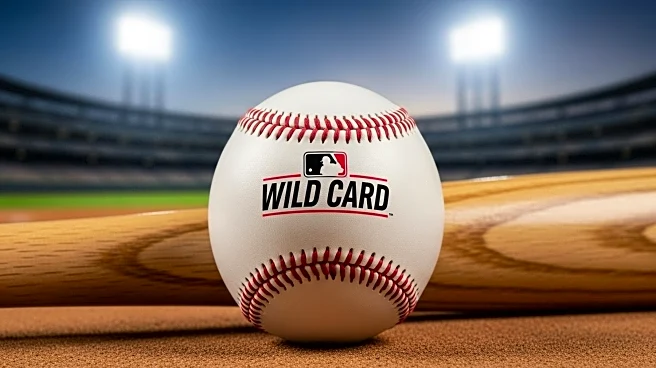What is the story about?
What's Happening?
Major League Baseball's wild card system plays a crucial role in the postseason, allowing teams that did not win their division to compete in the playoffs. Since 2022, three teams from each league earn a wild-card spot, increasing the total number of playoff teams to 12. The format involves a best-of-three series, with the third-best division winner hosting the third-best wild-card team, while the other two wild-card teams face off with the higher-seeded team hosting all games. The wild card was introduced in 1995, and its format has evolved over the years, including a temporary expansion during the COVID-19 pandemic in 2020.
Why It's Important?
The wild card system significantly impacts the competitive landscape of MLB, providing more teams with the opportunity to vie for the World Series. This format increases fan engagement and revenue by extending the postseason and allowing teams with strong regular-season performances to continue competing. It also adds strategic complexity for teams aiming to secure a playoff berth, influencing roster decisions and game strategies throughout the regular season.
What's Next?
As the postseason approaches, teams will strategize to secure wild-card spots, potentially leading to intense competition and strategic maneuvers. The format's success could prompt further discussions on expanding the postseason or adjusting the wild-card system to enhance competitiveness and fan interest.
Beyond the Headlines
The wild card system reflects broader trends in professional sports towards inclusivity and maximizing revenue through extended playoff formats. It also highlights the balance between rewarding regular-season success and maintaining competitive integrity in the postseason.

















